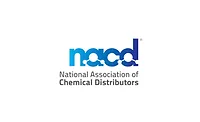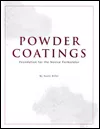ACD Urges EPA to Reconsider Proposed Rule on the Procedures for Risk Evaluation Under the TSCA

The Alliance for Chemical Distribution (ACD), formerly the National Association of Chemical Distributors (NACD), submitted comments to the U.S. Environmental Protection Agency (EPA) urging the agency to reconsider its proposed rule on the Procedures for Risk Evaluation under the Toxic Substances Control Act (TSCA).
In the submitted comments, ACD’s Senior Vice President of Regulatory Affairs, Jennifer Gibson, expressed concerns about the potential disruption of due process and the risk for biased decision-making. Gibson warned how the proposed rule would exacerbate inefficiencies that already exist in the current TSCA Section 6 risk evaluation process.
"ACD is significantly concerned with the EPA’s Procedures for Risk Evaluation under the Toxic Substances Control Act proposed rulemaking because many measures in the proposal would undermine the scientific integrity of the risk evaluation process,” said Gibson. “Additionally, ACD is worried that if codified, this rulemaking will result in unreasonable risk determinations for most, if not all, future chemicals undergoing risk evaluation.”
Gibson underscored the importance of maintaining existing, codified definitions in its risk evaluations.
“ACD is alarmed by this proposal and opposes the elimination of these important definitions because it would undermine the validity of the Agency’s risk evaluations,” said Gibson. “While the Alliance does not dispute that determining what is the ‘best available science’ and ‘weight of scientific evidence’ requires the Administrator's professional judgment, there should be a publicly accessible standard by which the Administrator is adhering to systematically assess the science and evidence that can be applied equitably across all risk evaluations. Clear standards provide consistency and reproducible results through possible Administration changes and the development of new science.”
Gibson continued by highlighting the potential economic consequences of this proposed rule.
“If the EPA codifies the rule as proposed and continues along its restrictive chemical management path, these changes will shake the economy. Moreover, the impact of this proposed framework goes beyond an economic impact. Chemicals are essential to daily life, including those that have been prioritized for risk evaluation, and if the EPA overly restricts and bans substances that have no or limited viable alternatives, there will be severe unintended consequences for the health, safety, and well-being of the public.”
Gibson concluded, "ACD strongly urges the EPA to rescind this proposed rule. It undermines the scientific integrity of the TSCA Section 6 risk evaluation process and, if implemented, would invite greater inefficiencies and misapplications of law, not remedy those that plainly exist in the current process."
To read ACD’s full comments, click here.
Looking for a reprint of this article?
From high-res PDFs to custom plaques, order your copy today!




-(1).webp?height=200&t=1668413861&width=200)


